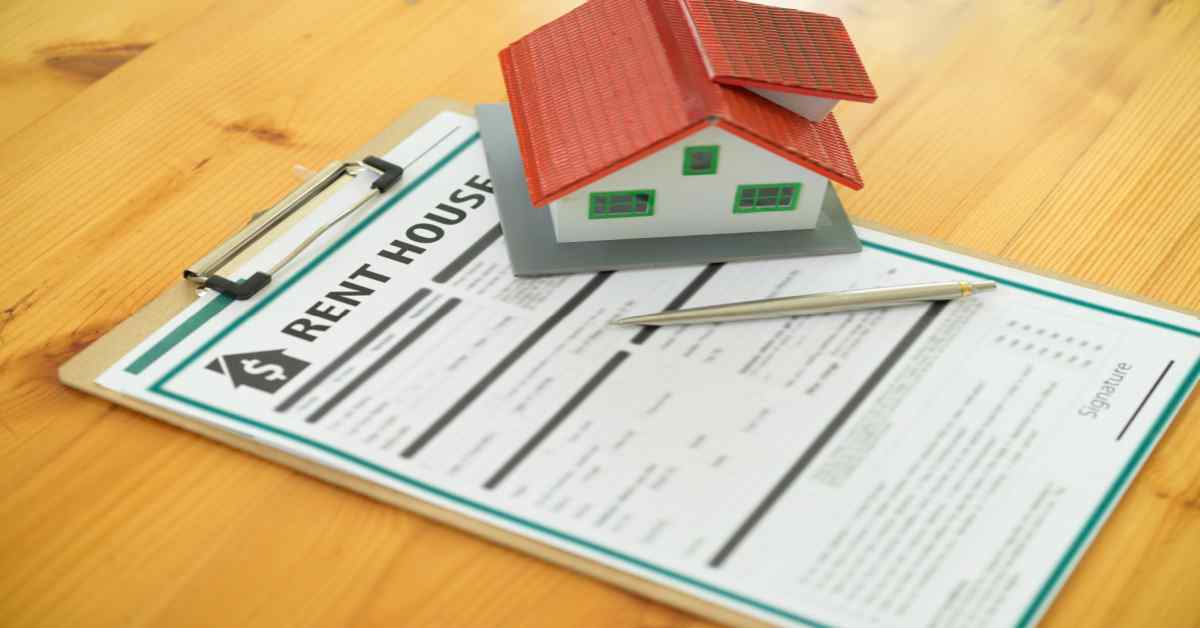Table of Contents
Quality Service Guarantee Or Painting Free

Get a rental agreement with doorstep delivery

Find the BEST deals and get unbelievable DISCOUNTS directly from builders!

5-Star rated painters, premium paints and services at the BEST PRICES!
Loved what you read? Share it with others!


Submit the Form to Unlock the Best Deals Today
Check Your Eligibility Instantly

Experience The NoBrokerHood Difference!
Set up a demo for the entire community
Landlord and Tenant Disputes: Resolving Conflicts Effectively
Table of Contents
Renting a place to live can be great. You don't have to worry about maintenance or property taxes. But it's not always smooth sailing. Sometimes, landlords and tenants clash. These fights can get ugly fast. We have seen our share of rental drama over the years, both as renters and landlords. Trust us, it's no fun for anyone. But knowing what to expect helps. So, let's dive into the world of landlord and tenant disputes.
What Causes These Fights?
Many things can spark arguments. Rent is a big one. Late payments cause tension. So do sudden rent hikes. Repairs are another hot topic. Tenants want fixes fast. Landlords might drag their feet. Sometimes it's about following rules. Tenants might break lease terms. Landlords could ignore tenant rights. Noise complaints are frequent too. One person's music is another's headache. Privacy is important. Landlords need access sometimes. But tenants deserve peace. Finding balance can be challenging. Deposits cause drama at move-out time.
Common Dispute Types
Let's explore the landlord-tenant dispute. These issues often spark clashes between landlords and tenants.
Quality Service Guarantee Or Painting Free

Get a rental agreement with doorstep delivery

Find the BEST deals and get unbelievable DISCOUNTS directly from builders!

5-Star rated painters, premium paints and services at the BEST PRICES!
- Rent Issues: Late rent is a top problem. Tenants struggle to pay on time, and landlords rely on that income. Clear late fees and grace periods help. Communication is key when money's tight.
- Lease Violations: Rules exist for a reason, but sometimes, they're broken. Unauthorized pets are common, as is smoking in non-smoking units. Extra roommates can also cause trouble.
- Landlords have duties too. They must follow lease terms. Entering without notice is a no-go. Ignoring maintenance requests is bad news.
- Repairs and Maintenance: Things break. It's a fact of life. But who fixes what? And how fast? Leaky faucets seem minor. But they can lead to big fights. Major issues like heating need quick action. These charges can also include society maintenance charges.
- Evictions: Nobody wants this outcome, but sometimes it happens. Non-payment is a common reason, and repeated rule-breaking can lead to this, too. Landlords must follow strict legal procedures.
- Security Deposits: This money causes end-of-lease drama. Tenants expect it back. Landlords might spot damage. What's fair wear and tear? It's often a grey area.
Clear move-in and move-out inspections help. Taking photos is smart. Itemised deduction lists are crucial.
Preventing Disputes
In an owner-tenant dispute, an ounce of prevention is worth a pound of cure. Here's how both landlords and tenants can prevent problems before they start.
- Clear Communication: Talk early and often. Address small issues before they grow. Use email for a paper trail. Be polite but firm. Listen to the other side's concerns.
- Know the Laws: Landlord-tenant laws vary by location. Both parties should study them. Ignorance isn't an excuse. Local housing authorities, tenant unions, and landlord associations offer guidance.
- Detailed Leases: Vague terms can cause disputes between landlords and tenants. Spell everything out clearly. Cover all bases in writing. Both sides should understand fully. Don't rush the signing process.
- Regular Inspections: Check the property periodically, follow proper notice procedures, look for potential issues, fix small problems quickly, and document everything you see.
- Professional Management: Some landlords hire help. Property managers know the ropes and handle day-to-day tasks. This can reduce direct conflicts, but it adds cost for landlords.
Resolving Conflicts
Sometimes, despite best efforts, conflicts arise. Let's look at ways to settle disputes when talking it out just isn't enough.
- Direct Negotiation: Start with a calm discussion for managing landlord & tenant disputes. Explain your side clearly. Listen to their perspective. Look for middle ground. Put agreements in writing.
- Mediation: Neutral third parties can help. They don't make decisions. But they guide talks. This keeps things civil. It's often cheaper than court.
- Small Claims Court: For rental disputes about money. It's less formal than regular court. Lawyers aren't always needed. Decisions are legally binding. Know the claim limits in your area.
- Lawsuits: A last resort. It's expensive and time-consuming. You'll need a lawyer. The process can be stressful. But sometimes it's necessary for big issues.
Things to keep in Mind
Tenancy disputes are part of renting. But they don't have to ruin relationships. Knowledge is power in these situations. So is a willingness to compromise. Some of the things to keep in mind are-
- Good faith goes a long way. Assume the best intentions. Maybe the landlord is new to this. Perhaps the tenant is going through a rough patch. A little understanding can defuse tension.
- Document everything. Keep receipts and records. Save emails and texts. Take photos when relevant. This protects both parties if things escalate.
- Know when to seek help. Some issues are too big to handle alone. Legal aid services exist for tenants. Landlords have professional organizations. Use these resources when needed.
- Prevention is best. Screen tenants carefully, landlords. Read leases thoroughly, renters. Ask questions before signing anything. Clarity now saves headaches later.
- Stay up to date on laws. They change sometimes. New regulations might affect you. Local governments often have landlord-tenant offices. They're great sources of current info.
Remember, it's a business relationship. But homes are personal. Finding balance takes effort to avoid landlord dispute. It's worth it for peace of mind. And for protecting your rights and property. In the end, we all want the same things. A safe, comfortable home. A steady income from an investment. Mutual respect goes far in achieving these goals.
Renting will always involve some give and take. Perfect harmony between landlords and tenants is rare. But it doesn't have to be all-out war either. Knowledge is power in situations like landlord and tenant disputes. Know your rights. Understand your responsibilities. Communicate clearly. Document everything. And remember, a little kindness goes a long way. We're all human. We all need a place to call home. With some effort and understanding, we can make renting work for everyone.
Frequently Asked Questions
1.What should I do if my landlord won't make repairs?
Ans: Document the issue with photos and written requests. If they still won't fix it, check local laws. You might be able to withhold rent or make repairs yourself and deduct the cost. As a last resort, consider moving or taking legal action.
2.Can a landlord enter my apartment without permission?
Ans: Generally, no. Landlords usually need to give notice, except in emergencies. The exact rules vary by location. Check your lease and local laws. If your landlord repeatedly violates your privacy, document it and consider legal advice.
3.How can I get my security deposit back?
Ans: Leave the place in good shape. Clean thoroughly and document the condition. Request a walk-through with your landlord. Know your rights - in many places, landlords must return deposits within a set time and provide an itemized list of any deductions.
4.What are my options if I can't pay rent?
Ans: Talk to your landlord immediately. They might offer a payment plan. Look into local rental assistance programs. Consider subletting if allowed. As a last resort, you might need to break your lease. But be aware of the potential consequences.
5.Can a landlord refuse to rent to me because of my race, religion, or family status?
Ans: No, this is illegal under fair housing laws. If you suspect discrimination, document everything and report it to your local fair housing agency. Consider filing a complaint with the Department of Housing and Urban Development (HUD) or seeking legal advice.
Loved what you read? Share it with others!
Most Viewed Articles

Guide to Leasing Commercial Property to Large Franchises for Maximum Profit
January 31, 2025
31803+ views

Rental Agreements in India: Key Insights for Tenants & Landlords
January 31, 2025
29135+ views

Tax On Rental Income: Exemptions and Deductions
January 31, 2025
19863+ views

Leave and License Agreement: Legal Aspect and Format
January 31, 2025
18869+ views

Indian Rental Market Trends 2025: Analysing Rental Market in India
January 31, 2025
15848+ views
Recent blogs in
Renting a New House? Here’s a List of Things to Check
January 31, 2025 by NoBroker.com
Process of Renting Out a Home in India
January 31, 2025 by NoBroker.com
Elevate Your Real Estate Photography: A Step-by-Step Guide to Stunning Property Visuals
January 31, 2025 by NoBroker.com
5 Easy Steps to Rent Your Home in India
January 31, 2025 by NoBroker.com
Personalize Your Rental Homes the Right Way
January 31, 2025 by NoBroker.com





Join the conversation!